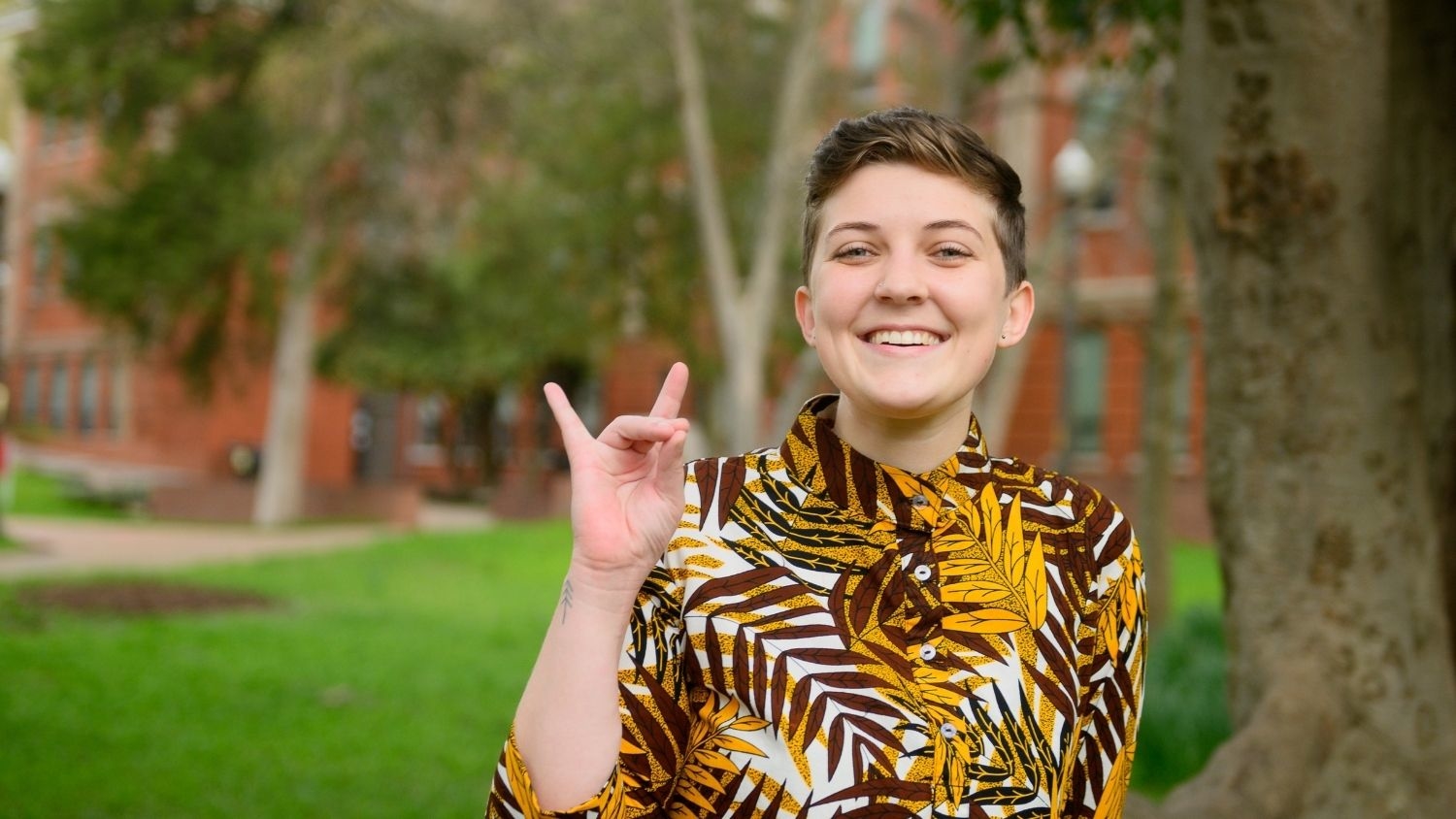Graduation to Vocation: Protecting Aquatic Species through Freshwater Ecology

Cheyana Bassham will graduate in May 2021 with a major in fisheries, wildlife and conservation biology and minor in applied ecology. She is a Goodnight Scholar and College of Natural Resources Student Ambassador.
During her time at NC State, Bassham has worked as an education and outreach intern for the Pisgah Conservancy and U.S. Forest Service and as a wildlife conservation intern for the North Carolina Wildlife Resources Commission. She also spent a semester in Tanzania studying wildlife management through the School for Field Studies.
After graduation, Bassham will work as a research technician at the University of Georgia before pursuing her master’s degree. We reached out to Bassham to learn more about her experience at the College of Natural Resources and her future plans.
How has the College of Natural Resources prepared you for your future?
I am very grateful for the emphasis on hands-on learning within the College of Natural Resources. Between outdoor labs in my required classes, field trips to Schenck Forest and other local nature areas, to my internship and study abroad experiences, I am confident that I have gained many valuable field experiences that will make me a stronger and more well-rounded professional.
What’s your favorite memory or class from your time at the College of Natural Resources?
One of my favorite memories is from Dr. Lara Pacifici’s vertebrate natural history class. Shortly before the pandemic, Dr. Pacifici led a field trip to the Yawkey Wildlife Center in South Carolina. During the two days that we were at the center, we got an in-depth look into the specific wildlife management techniques for a wide variety of species used by their staff. In addition to learning a lot, it was also really nice to connect with other students in my program.
What is unique about your work?
What I consider most unique about my work is the diversity of plant and animal species that I encounter on a regular basis. In particular, the mountains of western North Carolina foster an immense diversity of salamander species, including one of my personal favorites, the hellbender. Some waters within the Pisgah National Forest are exceptionally clean, and so hellbenders thrive uniquely there. Snorkeling in a river and coming across a hellbender is one of the most amazing experiences I have ever had.
Apart from dealing with the threatened hellbenders, my work is also unique considering the variety of often underappreciated macroinvertebrates that I seek out through the work that I do.
What motivated you to pursue your work?
Growing up in western North Carolina, I spent a lot of my childhood outdoors, hiking, camping and fishing. Those experiences helped me to form a strong connection to nature from a fairly early age, but it wasn’t until later in high school that I really considered making a career out of my passion.
While I knew I wanted to do something with wildlife, I certainly wasn’t clear on my direction before starting at NC State. During my time here, I worked as a laboratory assistant with Dr. Alonso Ramirez that really opened my eyes to the world of aquatic macroinvertebrates and their use as indicators of water quality. Shortly after, I had an internship in the Pisgah National Forest focused on human impacts to river ecosystems; those two experiences combined to motivate me to pursue a career in freshwater ecology.
What advice would you give students entering your major or field?
I would highly recommend that you make connections with as many professionals as you can. Not only are they a great resource for advice and sharing their own experiences, but they can help you reach your goals as well.
Throughout my time at NC State I have taken advantage of several opportunities to be matched with professional mentors in my field. They have all been extremely helpful in helping me to navigate internship and graduate school applications, reviewing my resume, practicing interview skills and using their own networks to connect me with others in the field of wildlife biology. I am very grateful for my network of strong female mentors who have helped to shape my future.
- Categories: